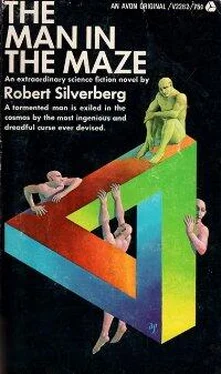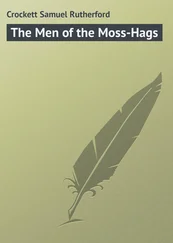“I had no loved ones.”
“You were married.”
“Terminated.”
“Liaisons, then.”
“They couldn’t stand me when I came back.”
“Friends?”
“They ran,” Muller said. “On all six legs they scuttled away from me.”
“You didn’t give them time.”
“Time enough.”
“No,” Rawlins persisted. He shifted about uneasily on the chair. “Now I’m going to say something that will really hurt you, Dick. I’m sorry, but I have to. What you’re telling me is the kind of stuff I heard in college. Sophomore cynicism. The world is despicable, you say. Evil, evil, evil. You’ve seen the true nature of mankind, and you don’t want to have anything to do with mankind ever again. Everybody talks that way at eighteen. But it’s a phase that passes. We get over the confusions of being eighteen, and we see that the world is a pretty decent place, that people try to do their best, that we’re imperfect but not loathsome—”
“An eighteen-year-old has no right to those opinions. I do. I come by my hatreds the hard way.”
“But why cling to them? You seem to be glorying in your own misery. Break loose! Shake it off! Come back to Earth with us and forget the past. Or at least forgive.”
“No forgetting. No forgiving.” Muller scowled. A tremor of fear shook him, and he shivered. What if this were true? A genuine cure? Leave Lemnos? He was a trifle embarrassed. The boy had scored a palpable hit with that line about sophomore cynicism. It was. Am I really such a misanthrope? A pose. He forced me to adopt it. Polemic reasons. Now I choke on my own stubbornness. But there’s no cure. The boy’s transparent; he’s lying, though I don’t know why. He wants to trap me, to get me aboard that ship of theirs. What if it’s true? Why not go back? Muller could supply his own answers. It was the fear that held him. To see Earth’s billions. To enter the stream of life. Nine years on a desert island and he dreaded to return. He slipped into a pit of depression, recognizing hard truths. The man who would be a god was just a pitiful neurotic now, clinging to his isolation, spitting defiance at a possible rescuer. Sad, Muller thought. Very sad.
Rawlins said, “I can feel the flavor of your thoughts changing.”
“You can?”
“Nothing specific. But you were angry and bitter before. Now I’m getting something—wistful.”
“No one ever told me he could detect meanings,” Muller said in wonder. “No one ever said much. Only that it was painful to be near me. Disgusting.”
“Why did you go wistful just then, though? If you did. Thinking of Earth?”
“Maybe I was.” Muller hastily patched the sudden gap in his armor. His face darkened. He clenched his jaws. He stood up and deliberately approached Rawlins, watching the young man struggling to hide his real feelings of discomfort. Muller said, “I think you’d better get about your archaeologizing now, Ned. Your friends will be angry again.”
“I still have some time.”
“No, you don’t. Go!”
Against Charles Boardman’s express orders, Rawlins insisted on returning all the way to the Zone F camp that evening. The pretext was that Rawlins had to deliver the new flask of liqueur which he had finally been able to wheedle out of Muller. Board-man wanted one of the other men to pick up the flask, sparing Rawlins from the risks of Zone F’s snares. Rawlins needed the direct contact, though. He was badly shaken. His resolve was sagging.
He found Boardman at dinner. A polished dining-board of dark wood mortised with light woods sat before him. Out of elegant stoneware he ate candied fruits, brandied vegetables, meat extracts, pungent juices. A carafe of wine of a deep olive hue was near his fleshy hand. Mysterious pills of several types rested in the shallow pits of an oblong block of black glass; from time to time Boardman popped one into his mouth. Rawlins stood at the sector opening for a long while before Boardman appeared to notice him.
“I told you not to come here, Ned,” the old man said finally.
“Muller sends you this.” Rawlins put the flask down beside the carafe of wine.
“We could have talked without this visit.”
“I’m tired of that. I needed to see you.” Boardman left him standing and did not interrupt his meal. “Charles, I don’t think I can keep up the pretense with him.”
“You did an excellent job today,” said Boardman, sipping his wine. “Quite convincing.”
“Yes, I’m learning how to tell lies. But what’s the use? You heard him. Mankind disgusts him. He’s not going to cooperate once we get him out of the maze.”
“He isn’t sincere. You said it yourself, Ned. Cheap sophomore cynicism. The man loves mankind. That’s why he’s so bitter— because his love has turned sour in his mouth. But it hasn’t turned to hate. Not really.”
“You weren’t there, Charles. You weren’t talking to him.”
“I watched. I listened. And I’ve known Dick Muller for forty-odd years.”
“The last nine years are the ones that count. They’ve twisted him.” Rawlins bent into a crouch to get on Boardman’s level. Boardman nudged a candied pear onto his fork, equalized gravity, and flipped it idly toward his mouth. He’s intentionally ignoring me, Rawlins thought. He said, “Charles, be serious. I’ve gone in there and told Muller some monstrous lies. I’ve offered him a completely fraudulent cure, and he threw it back in my face.”
“Saying he didn’t believe it existed. But he does believe, Ned. He’s simply afraid to come out of hiding.”
“Please. Listen. Assume he does come to believe me. Assume he leaves the maze and puts himself in our hands. Then what? Who gets the job of telling him that there isn’t any cure, that we’ve tricked him shamelessly, that we merely want him to be our ambassador again, to visit a bunch of aliens twenty times as strange and fifty times as deadly as the ones that ruined his life? I’m not going to break that news to him!”
“You won’t have to, Ned. I’ll be the one.”
“And how will he react? Are you simply expecting him to smile and bow and say, very clever, Charles, you’ve done it again? To yield and do whatever you want? No. He couldn’t possibly. You can get him out of the maze, maybe, but the very methods you use for getting him out make it inconceivable that he can be of any use to you once he is out.”
“That isn’t necessarily true,” said Boardman calmly.
“Will you explain the tactics you propose to use, then, once you’ve informed him that the cure is a lie and that there’s a dangerous new job he has to undertake?”
“I prefer not to discuss future strategy now.”
“I resign,” Rawlins said.
Boardman had been expecting something like that. A noble gesture; a moment of headstrong defiance; a rush of virtue to the brain. Abandoning now his studied detachment, he looked up, his eyes locking firmly on Rawlins’. Yes, there was strength there. Yes, determination. But not guile. Not yet.
Quietly Boardman said, “You resign? After all your talk of service to mankind? We need you, Ned. You’re the indispensable man, our link to Muller.”
“My dedication to mankind includes a dedication to Dick Muller,” Rawlins said stiffly. “He’s part of mankind, whether he thinks so or not. I’ve already committed a considerable crime against him. If you won’t let me in on the rest of this scheme, I’m damned if I’ll have any part in it.”
“I admire your convictions.”
“My resignation still stands.”
“I even agree with your position,” said Boardman. “I’m not proud of what we must do here. I see it as part of historical necessity—the need for an occasional betrayal for the greater good. I have a conscience too, Ned, an eighty-year-old conscience, very well developed. It doesn’t atrophy with age. We just learn to live with its complaints, that’s all.”
Читать дальше












